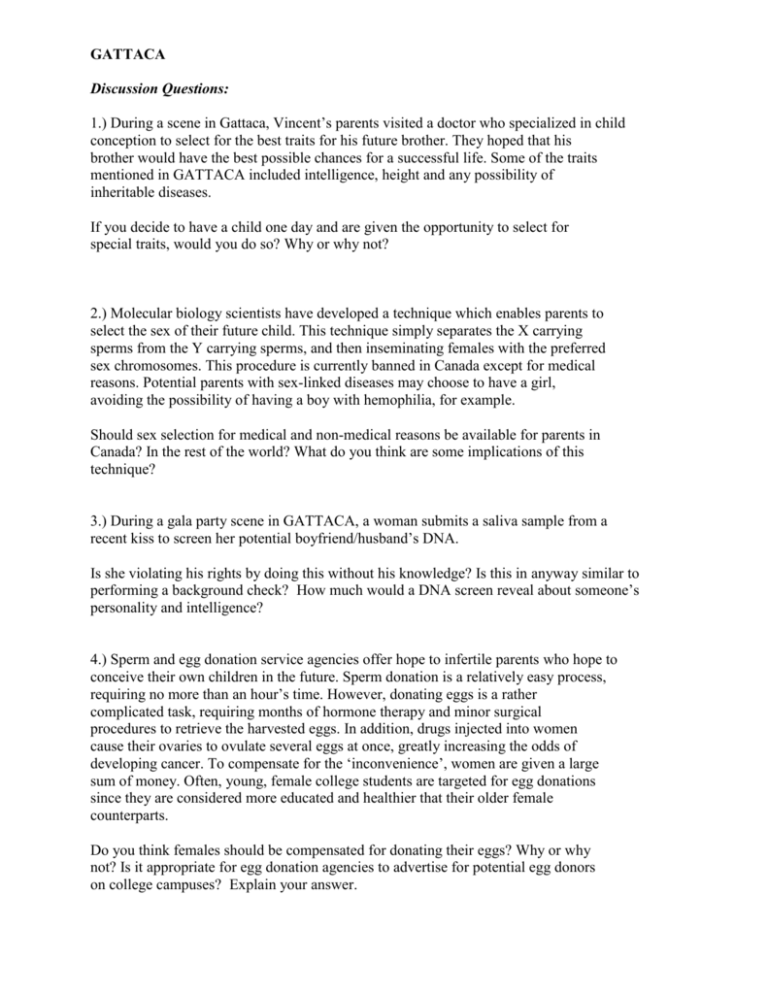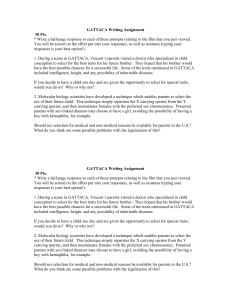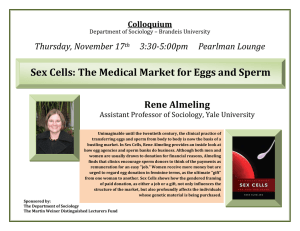GATTACA Activities
advertisement

GATTACA Discussion Questions: 1.) During a scene in Gattaca, Vincent’s parents visited a doctor who specialized in child conception to select for the best traits for his future brother. They hoped that his brother would have the best possible chances for a successful life. Some of the traits mentioned in GATTACA included intelligence, height and any possibility of inheritable diseases. If you decide to have a child one day and are given the opportunity to select for special traits, would you do so? Why or why not? 2.) Molecular biology scientists have developed a technique which enables parents to select the sex of their future child. This technique simply separates the X carrying sperms from the Y carrying sperms, and then inseminating females with the preferred sex chromosomes. This procedure is currently banned in Canada except for medical reasons. Potential parents with sex-linked diseases may choose to have a girl, avoiding the possibility of having a boy with hemophilia, for example. Should sex selection for medical and non-medical reasons be available for parents in Canada? In the rest of the world? What do you think are some implications of this technique? 3.) During a gala party scene in GATTACA, a woman submits a saliva sample from a recent kiss to screen her potential boyfriend/husband’s DNA. Is she violating his rights by doing this without his knowledge? Is this in anyway similar to performing a background check? How much would a DNA screen reveal about someone’s personality and intelligence? 4.) Sperm and egg donation service agencies offer hope to infertile parents who hope to conceive their own children in the future. Sperm donation is a relatively easy process, requiring no more than an hour’s time. However, donating eggs is a rather complicated task, requiring months of hormone therapy and minor surgical procedures to retrieve the harvested eggs. In addition, drugs injected into women cause their ovaries to ovulate several eggs at once, greatly increasing the odds of developing cancer. To compensate for the ‘inconvenience’, women are given a large sum of money. Often, young, female college students are targeted for egg donations since they are considered more educated and healthier that their older female counterparts. Do you think females should be compensated for donating their eggs? Why or why not? Is it appropriate for egg donation agencies to advertise for potential egg donors on college campuses? Explain your answer.











